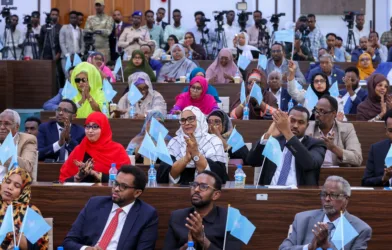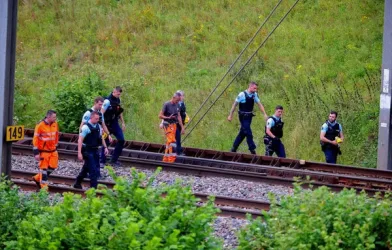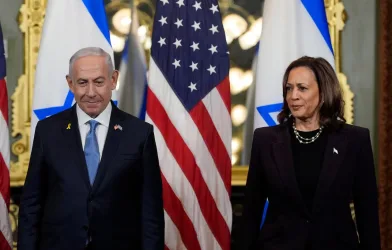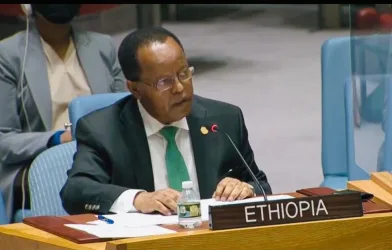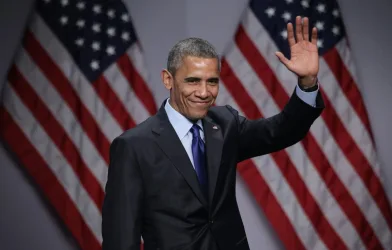 Recent events in the Twin Cities have sown nagging worry among Somali expats living in the Fargo-Moorhead area.
Recent events in the Twin Cities have sown nagging worry among Somali expats living in the Fargo-Moorhead area.
First came the disappearances of at least 20 young men who apparently traveled to Somalia to fight with the radical insurgent group Al-Shabab. This summer, 12 Minnesotans were indicted on charges of supporting the Islamic terrorist group, including two Rochester women accused of funneling money to it.
In Friday prayer and at family gatherings, local Somalis spoke up to counter the message they feared insurgent group recruiters might some day bring to the Fargo-Moorhead area.
Now, they hope they’ve found a better antidote – a youth group just launched by several area Somali college students bent on fighting the lure of bad crowds and extremist thought. They’ve called themselves the Multicultural Youth Protection and Development group.
“Parents are very scared about their children,†says Mohamed Mohamed, the group’s founder. “We thought, ‘How can we get to these children before the radicals get them?’ â€
Young and anchorless
Mohamed can relate to the sense of alienation that can make a Somali youth susceptible to a radical recruiter’s pitch.
Today, he’s an accounting student at Minnesota State Community and Technical College and a poised speaker of English.
But four years ago, when he arrived in the United States after years in a Kenyan refugee camp, he felt lost. He struggled to fit in and chafed at the entry-level jobs he was able to land. That frustration, he says, might have fueled the departures of Twin Cities young men for their restive homeland.
In the past couple of years, at least five Minnesotans have died in Somalia, where Al-Shabab fighters are trying to topple a weak transitional government. Five Minnesota men have pleaded guilty to charges as part of a sweeping FBI investigation of homegrown support of Al-Shabab, which is believed to have ties with Al-Qaida.
Two Rochester women accused of collecting and wiring money to the group have pleaded not guilty.
“It’s important for the general public to understand that the individuals we’ve indicted represent a small fraction of that community,†says T.K. Wilson, an FBI special agent in the Twin Cities, which hosts the world’s largest Somali expat community.
There, Somali elders and imams have openly condemned Al-Shabab and its U.S. recruitment. FBI efforts to reach out to that community are taking place in Fargo-Moorhead as well, Wilson said.
But some immigrant youth, who can feel equally misunderstood by their elders and U.S.-born peers, might hearken to the pitch.
“They are anchorless, and they feel disconnected from their host population,†says Jarret Brachman, a North Dakota State University professor and a leading expert on terror recruitment. “When a recruiter gives them direction, they grab on to it and feel empowered.â€
Rejecting recruiters
Although the Web features “a smorgasbord of resources†inviting youth to join Al-Shabab’s fight, Brachman says it usually takes a flesh-and-blood recruiter and a period of indoctrination for recruiters to be successful.
There’s no evidence recruiters have made their way to Fargo-Moorhead, where some 2,000 Somali-Americans live. Still, local elders are on guard.
Community leaders such as Abdirashid Kalif worry that hardworking Somalis, some of them single parents, have a tough time monitoring children after school. A few have gotten in trouble for shoplifting and petty theft, he says. Here in America, traditional reverence for elders exerts less of a pull.
“They don’t have respect for their teachers,†Kalif laments. “They don’t have respect for us.â€
Meanwhile, some families have moved to Fargo from bigger cities, where parents feared the pull of gangs and radical thought was stronger. After all, Somali refugees fled to America to get away from the violence chronically plaguing their country.
“I was looking for a place to keep my children safe,†says Ahmed Gure, who moved here from San Diego in 2008. “I feel this is the best place for my children.â€
Elders brought their concerns about Twin Cities developments to Christi Jacobson, cultural liaison officer for the Fargo Police Department, who was following developments closely, too.
She commends them for tackling the issue head-on with young people: “They really opened up the dialogue with their youth. By discussing it, it becomes less of a hush-hush issue you need to fear.â€
A sense of belonging
Jacobsen is especially heartened by the birth of Multicultural Youth Protection and Development, which promises to bridge the generational divide in the immigrant community.
“To have the message of the elders reiterated by fellow young people will really help convey that message,†she says.
Mohamed’s vision for the group is simple: Foster friendships and passions – the emotional buy-in that keeps young people anchored in a community. There are soccer, volleyball and basketball teams. There are college students tutoring kids at their homes. There are campus field trips and primers on college scholarships.
The message is straightforward: Stay in school. Stay out of bad crowds. Keep a positive outlook.
The group started out with fewer than a dozen kids this summer. Now, a few dozen participate, most of them from Somalia but also from Sudan and Liberia. More than 30 Somali community members contribute $20 a month to keep the group going. Mohamed is looking for more funding to bring sports games indoors in winter.
Ayan Gure, a West Fargo ninth-grader, has gotten help with chemistry homework. But the college students have helped with more than academics: They dispense advice on reaching out to American peers and standing up to bullies, for whom new American students can be easy prey.
“I think it gives you a sense of belonging,†Ayan says of the youth group. “There are a lot of youth these days that just give up. But if you don’t succeed today, there’s always tomorrow. That’s what they tell you every day.â€
 Source: INFORUM
Radical resistance: Area Somalis work to keep youth from insurgents
Published: October 28, 2010



